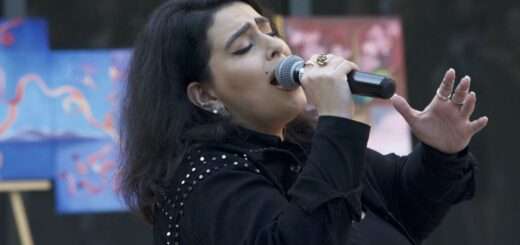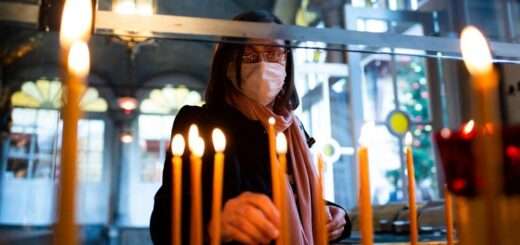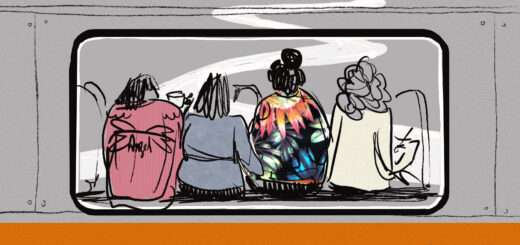British Parliament debates Armenian issues and Karabakh refugees
· March 22, 2024

According to her, the residents of Nagorno-Karabakh “want to return to their land, to the places that they have lived in for millennia, even though we see attempts to wipe out territories such as Artsakh from the map”.
These statements were made in the British Parliament during a discussion titled “International Support for Nagorno-Karabakh Refugees.” Members of the British Parliament declared “the ethnic cleansing in September 2023 as a crime similar to the Armenian genocide of the last century.” Several members of parliament called for sanctions against Azerbaijan.
Rupa Huq stated that Armenia is a country that has suffered from pogroms and destruction for many years:
“Yet we talk here of a European near neighbour—a democracy—that has a hostile neighbouring territory in Azerbaijan, with its aggressions and ethnically motivated crimes against Armenians.
The figures are grim, with 10 months of illegal blockading of food, fuel and electricity and the forced displacement of 100,000 people.”
She reported meeting them when she visited Armenia as part of an Inter-Parliamentary Union delegation in February this year:
“We heard harrowing stories of human suffering—really touching stuff about people who fled on foot in the absence of fuel and took days and days to get over the border[…..] In this country, our voice should be stronger. In this Chamber in 2020, we debated the blockade of the Lachin corridor, but our weak response emboldened those actions.”
John Whittingdale, a representative of the Conservative Party, spoke about unlocking regional communications in the South Caucasus. He supported Armenia’s stance on this issue: roads passing through the country should remain under its control. Meanwhile, Azerbaijani authorities claim that “people and goods from Azerbaijan to Azerbaijan [referring to the road connecting Azerbaijan with its exclave Nakhchivan] should pass without any checks.”
“However, despite the apparent opportunity that now exists to obtain a peaceful settlement—we heard repeatedly from Armenians their desire to do so—in the last few hours the Prime Minister has issued a statement saying that Armenia could be at war by the end of the week, because Armenians believe that Azerbaijan continues to have territorial ambitions not just to take back control of Nagorno-Karabakh, as it has done, but for Armenia itself. So it is a very fragile situation,” believes Whittingdale.
He shared that he met with members of the Azerbaijani delegation at the OSCE in Vienna. They assured him that “they have no aggressive intentions towards Armenia; it is propaganda from Armenia.” However, after that, the British parliamentary representative “encountered a different reality” when he arrived in Armenia:
“Yet even while we were in Armenia, four Armenian soldiers were killed in the continuing conflict around the border. We were also taken up to see territory that is undoubtedly Armenia but is still under occupation by Azerbaijan.“
Carol Monaghan of the Labour Party believes that despite discussions around a peace agreement, tension remains.
She criticized Russian peacekeepers for failing to intervene and protect the population during the military actions in September 2023. According to Monaghan, Russian peacekeepers “were at best observers, and at worst actively supported the oppression of the local Armenian population.”
“As an aside, non-intervention by Russian peacekeepers sets a dangerous precedent that international humanitarian law can be breached without repercussions, and opens up the risk of future Azerbaijani incursions into Armenia, for example to secure a path to its exclave of Nakhchivan,” she stated.
Monaghan also highlighted the ethnic cleansing in Nagorno-Karabakh, which many see as reminiscent of the Armenian genocide of 1915-1923. She pointed out that about 34 countries, including the USA, Canada, and France, have recognized the historical genocide, but the UK has not. “ In denying formal acknowledgement of the historic atrocity, the UK Government continue to delegitimise the collective pain endured by the Armenian community,” Monaghan concluded.”
Tim Loughton, a member of the Conservative Party and chair of the Britain-Armenia friendship group, also believes that “Azerbaijan conducted a large-scale ethnic cleansing in Nagorno-Karabakh.” As a result, he called on the British government to impose sanctions against Azerbaijan.
Loughton thinks Azerbaijan “is trying to erase the name, culture, history, and heritage of a people who have lived in Nagorno-Karabakh for centuries.”
The parliamentarian addressed Leo Docherty, the Minister for European Affairs of the UK, present in the chamber where the discussion was taking place, with questions:
“Will the Government investigate whether ethnic cleansing under the UN definitions has taken place? If so, what are the implications of that? Will the Government press for investigation in respect of both political and military prisoners who are still being held by the Azeris?
What will the Government do to put pressure on the Azerbaijanis to withdraw from the 4,400-square-kilometre territory within sovereign Armenian boundaries that they are still occupying—some 30 or so villages?”
Tim Loughton also mentioned that there are signals of a potential “military encroachment on the sovereign territory of Armenia” soon. He believes that “such violations of international law should be followed by sanctions.”







